DOES ISLAM PROMOTES GENDER DISCRIMINATION?
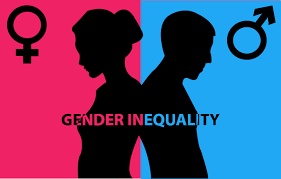
Islam does not discriminate against women. But Muslims do. And in my opinion, Muslims do so for two main reasons:
One reason is the assumption that has become entrenched in Muslim societies over many centuries that women are intellectually inferior beings and this is why men can make decisions on their behalf.
The second reason is that women were virtually excluded from the public domain a long time ago. As a result, when women do enter the public domain, they are put under a lot of pressure. Often Muslim women are afraid to make decisions. Opinion leaders and ulema in Muslim societies have collectively agreed that women belong inside the house because they make poor decisions under pressure, so this proves that they should not be making decision related to the public sphere. This reasoning is a self-fulfilling prophecy: something happens because we expect it to happen, or believe it to be true. In organisational behaviour, this is taught as part of staff motivation: how our expectations of individuals affect their behaviour and performance. Women in Muslim societies make poor decision because we expect them to make poor decision and don’t empower them to make better decisions, not because there is a problem with their intellect.
The Qur’an tells us that men and women are equal and that gender has nothing to do with faith or piety. But does that mean they are not different? The beauty of Islam is that it understands perfectly that gender balance is a complex issue. It also understands that men and women have been created different. The differences bring harmony to a civilisation, to a household, to a family. In other words, the differences are complementary: society is at its best when men and women work together, not against each other. It is important to keep this in mind otherwise the discussion turns ugly as we find in the writings of angry feminists like Fatima Mernissi, Amina Wadud-Mohsin and Mona Eltahawy, who tend to give in to the impulse of saying bad things about men.
Islam, like the other Abrahamic religions, puts marriage at the centre of the gender issue: the progress of society depends on the family unit and the health of the family unit depends on the marriage. The Qur’an offers very few guidelines in this matter and then leaves the rest up to Muslim men and women to negotiate between themselves. Here are the guidelines, obligations and limits: Men and women can only have sexual relations in a marriage.
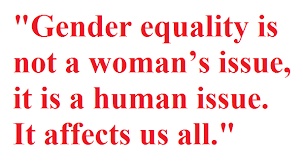
A husband has a degree of superiority over his wife because he has been appointed a guardian for the household and because he has been given the responsibility to meet the financial needs of a family. Notice my use of the word ‘husband’ because it is important to understand that the Qur’an is referring to social roles and not to any gender superiority. The Qur’an is not saying that men as a gender are superior to women as a gender. Rather, it is saying that they have different roles to play. This is exactly how the social role of a mother is superior to the father. These roles have to be defined clearly for an institution to run smoothly. In a family, the role given to the man is that of a husband and father who has to provide for his family. In light of this great responsibility he has also been given the decision making role. This also means that husbands and fathers will be accountable on the Day of Judgement if they ignore this duty to provide.
Because of the husband’s role in a family unit, he has also been given the right to pronounce divorce. This does not mean that a woman has not been given a choice. Islam, in fact, gives women full choice in this matter and they can request a divorce or annulment (khul). There are plenty of reliable hadith reports which tell us clearly that the Prophet (SAW) always respected the wishes of women who wanted to leave their husbands because they were unhappy in the marriage.
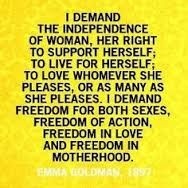
A wife’s primary responsibility is to look after the household, to carefully spend from her husband’s wealth, and to look after the children. This is an extremely powerful role:a mother has immense influence on the moral upbringing of her children and she can play a crucial part in their education. Women often underestimate the importance of this role but Islam doesn’t. In sound Hadith reports, we find the role of a mother is much superior to the role of a father.
Some rules of modesty have been put in place to regulate social interaction. These include the following: that men and women should not leer at each other or flirt, that they should guard their honour; in addition, women should cover their adornments and wear an outer cloak. There is no prescriptive dress code and there is plenty of room for cultural and personal preferences. There is no right or wrong, jaiz (جائ ز ) or na-jaiz (ن اجائ ز ), halaal or haraam about articles of clothing likes jeans or skirts, as long as they meet the definition of decency. The only duties or obligations listed in the Qur’an have been given in the list above; the rest is flexible.
There are now two things for us to consider:
Are the above guidelines rigid?
Are the above guidelines discriminatory against women?
The answer to the first one is no, they are not rigid. Whilst husbands have the responsibility to earn, wives have the choice to earn. In other words, if a wife is able to look after the household, if she is organised and has the time and energy to build her own career, then she can do so. In fact, by doing so her contribution to society will be two-fold: she will not only be doing the commendable job of raising children, she will be actively involved in social matters that affect the wider society. If she chooses to spend her wages on her children and household, then her contribution is three-fold.
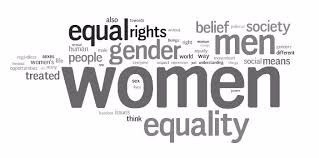
But if a woman wishes to have a career, she may need some help in running the household and it is here that Qur’anic teachings are once again flexible. Husbands have the choice to help with household chores and they have been taught to be kind and caring to their wives and children. In other words, the Qur’an leaves it up to the husband and wife to negotiate their other responsibilities and it will only be kind to share each other’s burdens and to support the wife in building a career or to undertake volunteer work. There is no ideal ‘sharing formula’ and it depends on the marital relationship how a husband and wife decide on who will cook and who will clean.

Men and women are different. Treating them equally will create injustices; one only has to look to the West to see what injustices can result from this. But it is amusing that the West also makes some concessions. I often think of Wimbledon tennis tournaments where women play 3-set games and men play 5-set games; or the different gymnastic events in Olympics.
Allah is the Creator of men and women and understands them the best. In His Infinite Wisdom, He has given excellent guidelines to write a social contract between men and women. This is why the gender roles have been identified so clearly in the Qur’an. The Qur’an would be discriminatory only if it assigned superiority to the gender and not to the role. It would be discriminatory if it held a man’s emaan to be superior to that of a woman. But it doesn’t. In fact, the Qur’an creates perfect equality in matters of faith and then plays to the strengths of both men and women in social matters. I honestly can’t think of a better solution to the complex problem of gender balance in society.
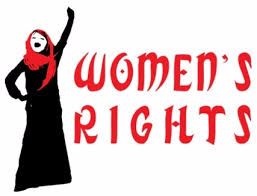
When the Prophet of Islam implemented these guidelines, he effectively empowered women by treating them as living and breathing human beings with thoughts, feelings and ambitions of their own. His wife Zainab (RA) used to tan leather and sell it and then give the sales revenues in charity. His wife Aisha (RA) became the most respected jurist of her time, with the Rashidun caliphs regularly consulting her on political matters. Muslim women looked after the injured in battles. Umm e Darda (RA) took the sword and fought valiantly. Women demanded their right to education and the Prophet granted it to them by setting aside a day a week to answer their questions about Deen. Allah revealed Surah An-Nisa which explicitly set out the rights granted to women to enable them to become full-fledged citizens. It is a shame that political and cultural influences took over a couple of centuries after the Prophet’s death and Muslim society was unable to create a social environment which would truly empower women whilst also guaranteeing dignity and respect to both genders.
In a nutshell, the religion of Islam is flexible and in perfect harmony with the needs of the human civilisation. It creates an atmosphere where both men and women can achieve well. It creates a culture of respect and understanding and sharing of each other’s burdens. I can’t imagine how this can be labelled as discriminatory. Both men and women can be political advisors, heads of organisations, doctors, nurses, dentists, chefs, accountants, entrepreneurs, tailors, builders and warriors. Men will often prefer some professions over others; so will women. They have been given the right to choose. The only limitations are the ones listed above.



